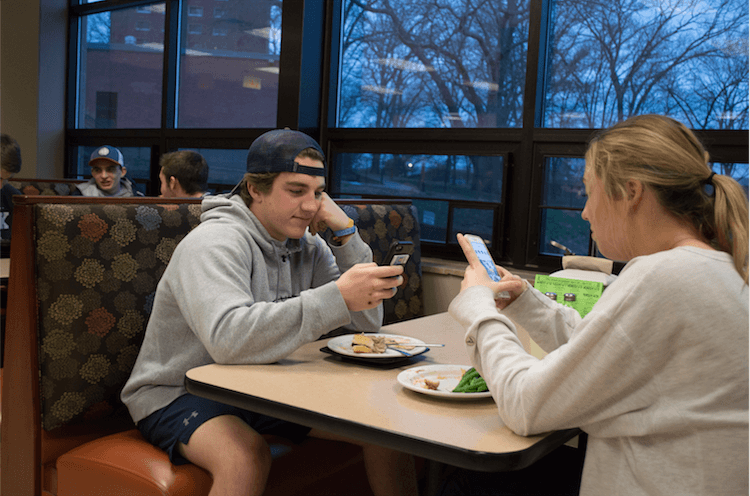by The Cowl Editor on April 19, 2018
Editorials

by Kelsey Dass ’18
Opinion Staff
Just about every other person you meet on a college campus is currently in a relationship, has been in one before, dated, or casually hooked up with another person they have come to really like.
Modern technology and ideologies surrounding dating have diminished the value and significance of relationships to an all-time low. Social media has altered our standards for trusting and evaluating our relationships.
From the literature we read in school to the movies we watched on the weekends, our generation grew up falling in love with love. Every one of us recalls reading Shakespeare’s epic love story, Romeo and Juliet, the tale of two star- crossed lovers separated by their feuding families.
A more modern example of a love story that people idealize is Nicholas Sparks’ The Notebook. Almost every person who has seen the movie has fallen in love with the love between Noah and Allie. The letters he wrote for her each day and the individual journeys they experienced despite their broken hearts, is what drew so many people into their relationship.
So why is it that for our generation, this version of love and relationships is so unattainable?
To start, our increasing use of technology has immensely impacted our relationships. On average, Americans are devoting 11 hours per day to screentime. Half of our days are spent scrolling through Instagram, Twitter, Facebook, Snapchat, and other social media outlets.
To make matters worse, these systems are constantly advancing, now allowing us to follow people’s every move with their “stories” and live video feeds. We can quite literally step into the life of another person through the rectangular screen in our own hand.
The issue is that we are actually using social media as a representation of trust in our relationships. Every person is aware of the feeling they get when a person they like or have been dating “likes” one of their Instagram posts. For some reason, through some psychological conditioning, we have been taught that this means they are communicating that they genuinely like us. In actuality, that person also just “liked” posts from many other people as well.
It does not just stop there. We have grown to trust the number of times we have exchanged Snapchats with the person we are dating. One red heart next to a person’s name means you have been best friends for two weeks straight, so this tells us we have basically been dating for two weeks. Just you wait, if you make it to two months straight you get two pink hearts, which probably means you should go straight to Facebook and change your relationship status to “It’s complicated.” Just be careful of the grimacing emoji, because that most likely means that person is cheating on you with your best friend.
When America fell in love with The Notebook, they fell in love with the journey and the time it took to bring them back together. However, modern-day industries have worked hard to bring us what we want in just seconds. Take Tinder, for example. This dating app functions by location and you can limit the radius in which you are looking. No longer is the girl you saw in the bar a mystery. A person could simply jump on Tinder, swiping left and right until they find a familiar face.
In addition to the speedy process, these dating apps allow us to communicate what we want from a person without saying a word. There are specific apps that are known for just hookups, and others for more serious relationships.
The social media dating world has eliminated our need to communicate much of anything, yet has accelerated our relationships to lightning speed. This accelerated process of building relationships has not only lowered their significance, but has dramatically altered our values.